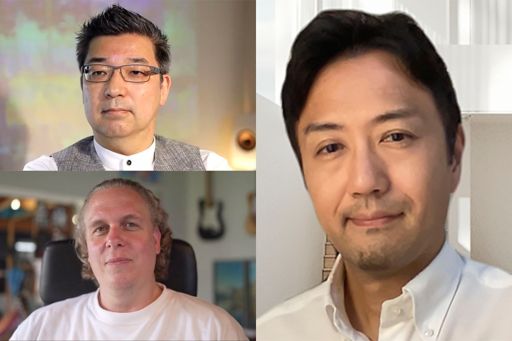The “sharing business,” which became a hot topic with the entrance of Airbnb and Uber in the market, has quickly penetrated the market with the spread of COVID-19. While there are expectations of “realizing a free working style” and “lowering the hurdles for starting businesses,” there are still unavoidable issues to be discussed for business growth, such as compliance with laws and regulations, optimization of the industry and resolution of conflicts with existing stakeholders.
However, a market that has been cultivated once will never disappear. How will it fit in with society and how will the power of digital technology be utilized in the process? In this article, we will introduce the discussions filled with visions and fantasies conducted between Akiko Nishiura of Nokisaki, inc. and Masayuki Chatani of KPMG Ignition Tokyo.
Contents
- How the Idea of the Sharing Business Was Developed
- Finding Locations for “Trial Sales” Was the Starting Point
- Unused “Free Space” Is Starting to Be Utilized amidst COVID-19 Pandemic
- Change in Flow of People Served as Tailwind for Nokisaki Business
- How Is Free Space Hunter Securing Free Space?
- “Nokisaki Parking” Was Launched in Line with Social Changes
- Profile of Interviewee
How the Idea of the Sharing Business Was Developed
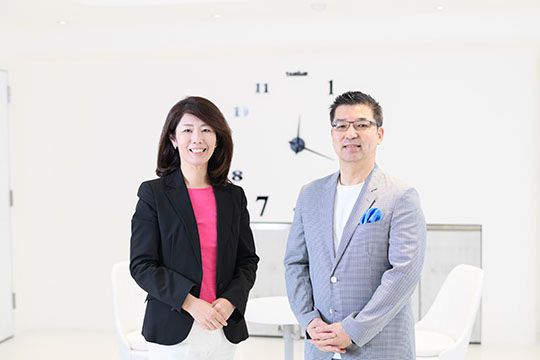
(Akiko Nishiura, Founder and CEO of Nokisaki, Inc. (left), Masayuki Chatani, Representative Director & CEO of KPMG Ignition Tokyo and CDO of KPMG Japan (right)) *Professional affiliation and official position in the article are at the time of publication.
Chatani: The sharing business seems to have entered a new phase with the spread of COVID-19. Your business evokes a feeling of excitement that there are buds of possibilities for small start-ups lying around everywhere in everyday lives. I would like to hear about such stories in this interview. First of all, can you tell us about the background behind how Nokisaki, Inc. was created?
Nishiura: Certainly. Nokisaki, Inc. marked its 12th anniversary in April 2021 but the word “starting businesses” did not exist in my early career path. I worked as a company employee for many years. When I was working for Sony, where you also worked, I was stationed in Santiago, Chile in South America, and I also worked for an external organization of the Ministry of Foreign Affairs afterwards.
At the age of 38, I had my first child. However, I couldn’t imagine myself “continuing to work while raising a child” at the place where I was working at the time. As I had worked hard until then, I decided to “take a break from the style of belonging to a corporate organization and change my lifestyle to doing what I could do at home while raising a child.”
Although I was thinking about something I could do at home, I didn’t have a clear business plan at the time. I was vaguely thinking of translating Spanish and Portuguese by using my language skills or privately importing and selling products from Chile, where I used to be based.
Many of you may associate Chile with inexpensive but good imported wine. However, rather than going into such a very competitive field, I thought of handling something that was still unfamiliar in Japan. What I came up with was sundry goods such as tableware.
Chile has many mines and is famous as a copper mining country. However, it is also a tin producing country. Pewter, which is tableware made of tin alloy with exquisite workmanship, is quite popular as a souvenir. It may be easier to understand if you imagine metalware filled with fruit and nuts placed in the middle of a table in the living room or dining room of foreign houses.
As these products can be enjoyed as interior decoration and because I thought that there was no other company that was privately importing and selling them online, I started preparing for this business from around 2007.
However, as a fixed monthly fee had to be paid to the platform provider when opening an online store back then, a considerable amount of initial investment was required. I felt that the obstacle was a bit high as there was no guarantee that the products would sell.
Therefore, I thought of “conducting trial sales of the products somewhere” to make sure that the online store would work out and to find out whether these items would sell in the first place and at what price people would be interested in buying them. Looking back now, I think this event was the starting point of the creation of Nokisaki, Inc.
Finding Locations for “Trial Sales” Was the Starting Point
Chatani: I guess doing trial sales was a form of market research, which would be faster than launching an e-commerce site.
Nishiura: That’s right. Naturally, I needed a place to carry out the trial sales. I started looking for places in whatever ways I could think of but, as you can imagine, the mainstream locations handled by real-estate agents involved long-term leasing or leasing with a two-year contract. There were no agents that would respond to an irregular request to rent a space for about one month.
After making a lot of effort, I found a place I could rent on a weekly basis right in front of Jiyugaoka Station. However, it was a small garage-like place of less than 3 tsubo (approx. 9.9m2). When I opened the shutter, there were only lights and an air conditioner. Despite this situation, the rent was set at 210,000 yen a week because of the good location.
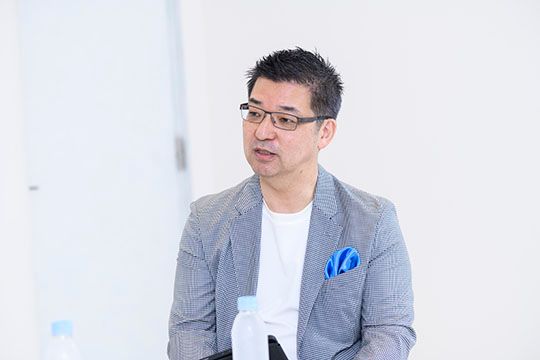
A rent of 210,000 yen per week, not per month, was much higher than a rent for a prime location in Ginza when you convert the unit price per tsubo.
Moreover, the place was fully booked for six months in advance and so I ended up being told that the place couldn’t be rented to first-timers.
I came to understand that the only two options I had were to sell the products on a straw mat at weekend flea markets or rent a space with a long-term contract.
While I was troubled, I also came to a number of realizations. One was that there were locations where products sold well that were booked for six months in advance even with surprisingly high rents. Another thing was that even though the price of real estate would be a little more affordable if it were rented on a monthly basis, when it is rented on a weekly basis, the value is suddenly added and it becomes very expensive. Even so, there are still people who want to rent and it is still a business.
I continued to develop my thinking in the following way. “It will take courage to pay 210,000 yen a week (30,000 yen a day) to sell products imported from Chile on a trial basis but if there is a place I can rent for about 3,000 yen a day, I will be able to take the risk. If there is a shop that can be rented casually at this price, what kind of location will it be?”
I first thought of renting and subleasing a shop but that would require an initial investment and there was the risk of a negative return. I then came up with the hypothesis that if I asked to rent a place that was not being used in the first place, there would be little risk for the tenant and the landlord would also consider renting it at several thousand yen a day if there were someone who wanted to rent it, as it would not be used in the first place.”
I then came to think of setting up a service that would meet the potential needs of individuals like me who wanted to start some kind of business but couldn’t take a big risk!
In other words, since there were only two ultimate options, Nokisaki Business was materialized based on “a service that would be nice to have,” which was triggered by the idea that “it would be nice if there was an infrastructure that provided support for starting business more easily.”
Unused “Free Space” Is Starting to Be Utilized amidst COVID-19 Pandemic
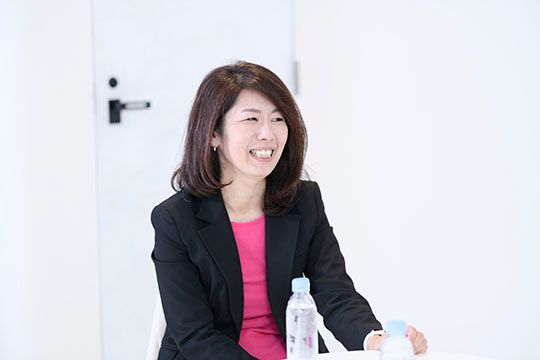
Chatani: I hear that Nokisaki Business is handling over 2,000 spaces now. I see that the needs of the lenders were high. I checked the website, wondering about the needs of the renters, and was drawn by the term “pop-up store culture.” What sort of culture is this?
Nishiura: In the distribution and retail industry, running a pop-up store is becoming a fashion nowadays. A pop-up store is basically a “short-term event.” It is a limited-time store that appears temporarily and disappears, just like the pop-up messages that appear on a computer.
There are several reasons why pop-up stores have been attracting attention recently. For instance, when a company with financial power wanted to open a store for trial sales for a limited time, the main trend was to open it within a department store.
However, the behavior of consumers has drastically changed, especially since the COVID-19 pandemic, and their motivation to “go all the way to a department store to buy something” seems to have declined. Some people even point out that customers are sensing more value in something that can only be bought or experienced there. This is why I think that sellers started to place importance on marketing in real space by going to where customers are or providing added value with a limited-time offer.
Another reason that cannot be dismissed is that entrepreneurs who want to start a business without fixed costs like me are increasing, though I’m not sure if the expression pop-up applies here.
We are seeing the emergence of the style of converting store rent, which is a fixed cost that is a major burden when an individual starts a business, to variable costs by going to and selling things where customers are when needed. I think this will probably become the mainstream going forward.
Change in Flow of People Served as Tailwind for Nokisaki Business
Chatani: Converting fixed costs to variable costs is indeed the idea of a manufacturer. What kind of businesses frequently utilize Nokisaki Business in this way?
Nishiura: All kinds of people who are doing business are utilizing our business but they can be categorized into three types.
The first type is the kitchen car business, which is the most familiar to us. It used to be called a mobile food vendor or food truck. The number of players has increased considerably in the past few years. Many stylish kitchen cars are appearing now and there are not only individually-run cars but also many corporations involved. Moreover, the number of kitchen cars that not only sell lunches at business districts but also crepes and light meals in the vicinity of suburban parks and amusement facilities is increasing.

Another model that uses our business is for product sales events. You may have seen sweets being sold inside stations but they are also selling products in this way at spaces other than station yards. Also, there have recently been cases of online shops renting space in the form of limited-time pop-up shops.
The last is corporate promotion campaigns, which are mainly used to promote insurance and credit card subscriptions. While these promotions used to be carried out at event spaces located in commercial facilities, cases where they are held on the street are increasing because vendors want to have contact with customers by going a step closer to them. This may surprise you but more and more spaces in residential areas are being used, which makes us sense the going in and out of style of the times.
Chatani: According to Kazuhisa Shibayama of Agoop, whom I interviewed before, there seems to be a phenomenon where people are using local shopping promenades and eating places in residential areas more frequently amid the increase in remote work caused by COVID-19.
Nishiura: That’s right! At first, I was surprised by this phenomenon. It used to be said that things only sell well at locations such as in front of stations or at commercial facilities. However, these locations are shifting more and more to residential areas. In other words, they are shifting to where there are more people.
With kitchen cars, for example, people used to say that no one would buy anything if you opened a store in a residential area but it seems that there are now cases where sales are much stronger in residential areas.
How Is Free Space Hunter Securing Free Space?
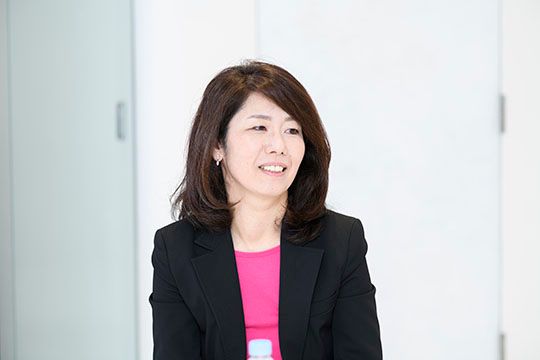
Chatani: While talking with you so far, I became curious about how you are acquiring spaces that you are handling. I understand that vacant spaces at rental video shops and major book stores in the suburbs are being rented via Nokisaki Business but were you initially thinking of promoting the effective use of these spaces?
Nishiura: Regarding the acquisition of space, we are still in a trial-and-error phase. Now that the word “sharing” has gained recognition, there are space owners and real-estate agents who are willing to lend space but we had a hard time having them understand the scheme at first. We therefore had to walk around and knock on their doors as a “space hunter” saying, “can you please lend us this space?”
Naturally, we soon realized that this was very inefficient and so from around the third year after establishing the company, we started partnering with companies that have numerous chain stores across the nation and real-estate agents with nationwide networks. We also changed to a marketing style of offering help to monetize their real-estate assets. We were then able to rent space or parking lots at road-side shops of companies that are operating nationwide.
So, what kind of customer journey does the user take to arrive at Nokisaki Business?
Nishiura: We are hoping to lend space to individual users in the future but our main target is corporate customers at this stage. They are selling products and making sales promotions somewhere every day and are constantly looking for the “next location.” They are searching the web with keywords that include the location and conditions of space they want to rent, so we are preparing our content accordingly.
“Nokisaki Parking” Was Launched in Line with Social Changes
Chatani: I think that Nokisaki Business is a service that skillfully assists the needs of people who want to “start a business” or “want to sell something on a trial basis.” On the other hand, I think that the targets and the needs of users of the other service, Nokisaki Parking, are a little different. Can you tell us about this?
Nishiura: The basic concept of Nokisaki Parking is the same as Nokisaki Business, that is, “to mediate between physical and temporal free spaces, which are types of land and buildings that are not marketed in ordinary real-estate business, for a short period of time.” Among them, Nokisaki Parking is a simple service aimed at utilizing space for parking cars.
When we started Nokisaki Business, there was a category of handling shared parking spaces. However, as you mentioned, we decided to separate them because user attributes and usage situations are different.
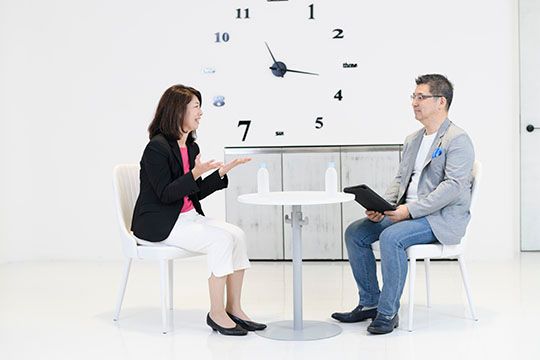
We launched the service in 2012 but we knew before then that there was a similar service in the U.K. Though the name of the service has now been changed to “JustPark.com,” it used to be “ParkatmyHouse,” and I was thinking, “this business, as the name suggest, is a very good business.”
I supposed that this kind of market would be launched in Japan someday. However, we lacked the resources to materialize the service ourselves.
However, there were two events at the beginning of 2012 that suddenly changed the tide. The first was an announcement by the National Tax Agency, which said, “In consideration of the changes in social situations, when an open parking space within the premises of a condominium apartment is rented out, only the rented space will be taxable. However, the use of the parking space must be prioritized for residents*.”
Until then, the entire parking lot had been the subject of taxation when even one parking space was rented out as a profit-making business. So, this change had a big impact.
* National Tax Agency (Japanese only) “Decision regarding Profit-making Business of Parking Lots of Condominium Apartments”
In response to this interpretation of the National Tax Agency, companies that had been operating parking lot businesses expanded their service by renting out vacant parking spaces of condominium apartments. Naturally, we also started to make offers to “operate open parking spaces by sharing sales.”
The other event was when I was directly contacted by the president of a subsidiary of a European car maker. The president said that the company was investing in ParkatmyHouse and was considering operating a service that would enable drivers to reserve a parking space from the dashboard of their high-end models in the future and that they were researching the Asian market to implement this feature. He said that Nokisaki Business was a company that was operating a service that was the closest to their idea in Japan and asked us if we were planning to provide a service in the parking space sector? When I heard this, I responded then and there that we were starting the service very soon. (laughs)
Chatani: That was great timing! When you actually started the service, were the users of Nokisaki Parking what you had imagined? I assume that people who go to concert venues or sport stadiums by car are using the service. Am I right?
Nishiura: There are many such cases but users that go to work or to school by car have been increasing since the outbreak of the COVID-19 pandemic.
People who use our service are those who use a parking space near where they are going two or three times a week. They don’t want to pay for a monthly parking space but want to secure a space when they use the parking lot. They don’t want to worry about finding a parking space every time.
Though there are many coin-operated parking lots in urban central areas, many of them are always full. The use of our service is especially high in these areas.
Chatani: This is probably an effect of the COVID-19 pandemic as well. Is there any trouble associated with the renting of parking spaces? I imagine that risks such as property damage accidents are high.
Nishiura: As we have been operating Nokisaki Parking for about nine years now, we have a general idea of the patterns of trouble. You may be surprised to hear that there are not many property damage accidents. Rather, there are more cases of inquiries that “the space cannot be found” as, unlike coin-operated parking lots, there is no sign or “some other car is parked in the reserved space.”
On the other hand, problems in local areas are different. A very common case is where residents have been parking there without permission for a while, saying, “That’s an empty parking space,” and this illegal parking is discovered when the users of Nokisaki Parking call in to say that a car is parked in the reserved space.
While one of the concerns of parking space owners before introducing the service is naturally property damage accidents, this only occurs several times a year. This is hardly surprising considering that people slow down their car in parking lots. As platform providers cannot insure for accidents that occur while driving, we try to explain this to both the owners and the users.
<Continue to Vol. 2>
Profile of Interviewee
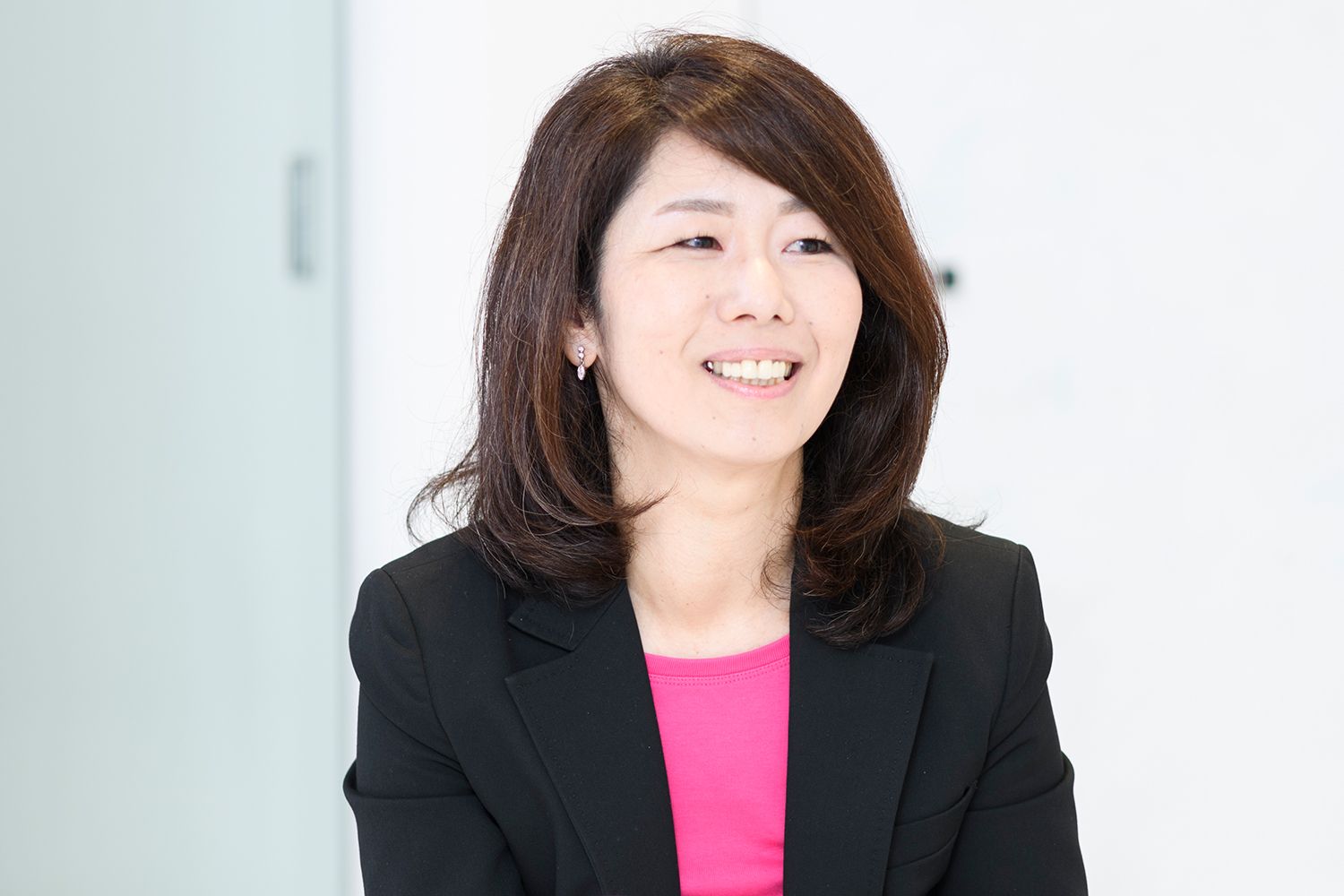
Akiko Nishiura
Founder and CEO of Nokisaki, Inc.
After graduating from Sophia University, Akiko Nishiura joined Sony Corporation. She was responsible for marketing and sales promotion of AV products for overseas markets and gained experience working in Chile, South America, as a product manager for over five years. She returned to Japan after leaving Sony and worked on the establishment of All About, Inc. as an advertising sales VP. She then joined Sony Interactive Entertainment Inc., where she was involved in the localization and product development of PlayStation 2 and PSP in the Product Planning Division. Deciding to start her own business on the occasion of the birth of her child, she started Japan’s first space sharing service in April 2008 as the representative of “Nokisaki” and established Nokisaki, Inc. in 2009. The company operates the “Nokisaki Business” for shared pop-up store space, “Nokisaki Parking” for shared parking space, and “magari” for shared restaurant space. She received the Incentive Award in the ICT Regional Revitalization Awards from the Ministry of Internal Affairs and Communications in 2017. She is now busily engaged in making proposals for the use of unused space throughout Japan.
Follow us on KPMG Ignition Tokyo LinkedIn for the latest news.
Connect with us
- Find office locations kpmg.findOfficeLocations
- kpmg.emailUs
- Social media @ KPMG kpmg.socialMedia



